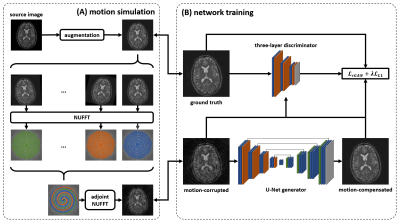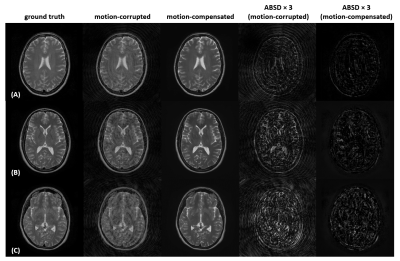Quan Dou1, Zhixing Wang1, Xue Feng1, John P. Mugler2, and Craig H. Meyer1
1Biomedical Engineering, University of Virginia, Charlottesville, VA, United States, 2Radiology & Medical Imaging, University of Virginia, Charlottesville, VA, United States
1Biomedical Engineering, University of Virginia, Charlottesville, VA, United States, 2Radiology & Medical Imaging, University of Virginia, Charlottesville, VA, United States
A deep convolutional neural network was implemented to retrospectively compensate for motion in spiral imaging. The network was trained on images with simulated motion artifacts and tested on both simulated and in vivo data. The image quality was improved after the motion correction.

